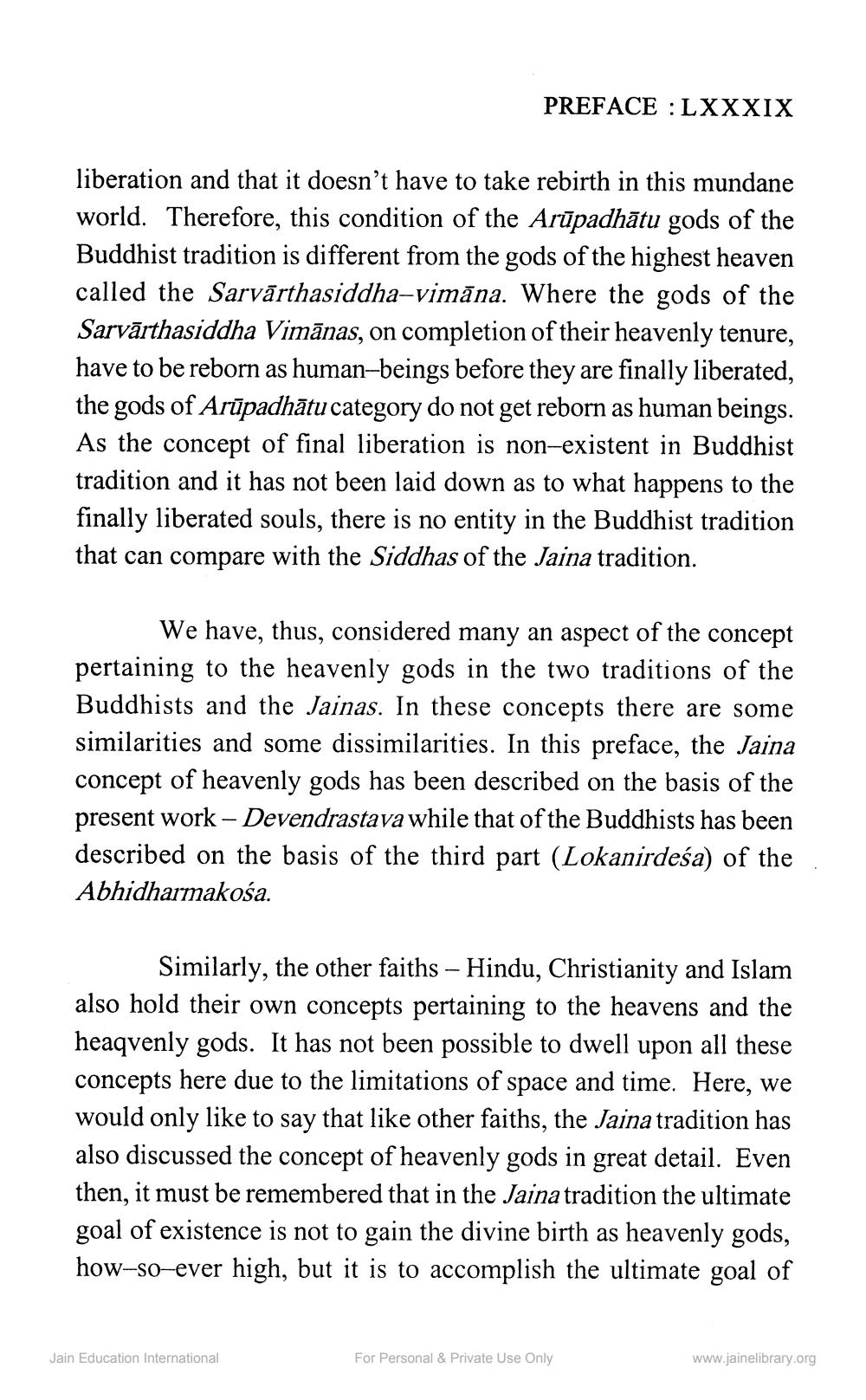________________
PREFACE :LXXXIX
liberation and that it doesn't have to take rebirth in this mundane world. Therefore, this condition of the Arūpadhātu gods of the Buddhist tradition is different from the gods of the highest heaven called the Sarvārthasiddha-vimāna. Where the gods of the Sarvārthasiddha Vimānas, on completion of their heavenly tenure, have to be reborn as human-beings before they are finally liberated, the gods of Arūpadhātu category do not get reborn as human beings. As the concept of final liberation is non-existent in Buddhist tradition and it has not been laid down as to what happens to the finally liberated souls, there is no entity in the Buddhist tradition that can compare with the Siddhas of the Jaina tradition.
We have, thus, considered many an aspect of the concept pertaining to the heavenly gods in the two traditions of the Buddhists and the Jainas. In these concepts there are some similarities and some dissimilarities. In this preface, the Jaina concept of heavenly gods has been described on the basis of the present work – Devendrastava while that of the Buddhists has been described on the basis of the third part (Lokanirdeśa) of the Abhidharmakośa.
Similarly, the other faiths - Hindu, Christianity and Islam also hold their own concepts pertaining to the heavens and the heaqvenly gods. It has not been possible to dwell upon all these concepts here due to the limitations of space and time. Here, we would only like to say that like other faiths, the Jaina tradition has also discussed the concept of heavenly gods in great detail. Even then, it must be remembered that in the Jaina tradition the ultimate goal of existence is not to gain the divine birth as heavenly gods, how-so-ever high, but it is to accomplish the ultimate goal of
Jain Education International
For Personal & Private Use Only
www.jainelibrary.org




